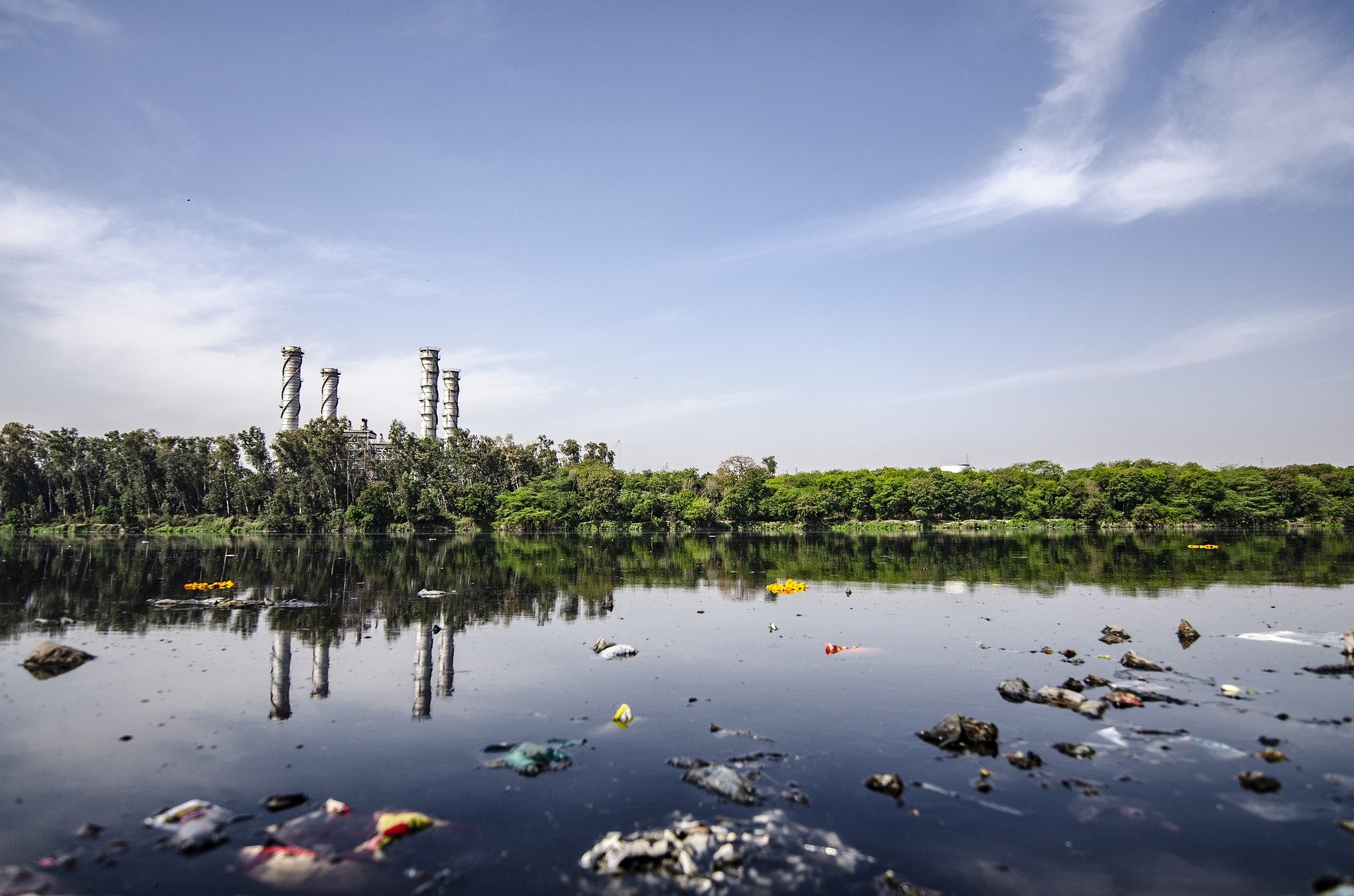If you’re a corporate director or officer, you might find your company and/or yourself in need of relief from unmanageable debts. The federal Bankruptcy and Insolvency Act (BIA) governs bankruptcy in Canada for individuals and business entities. If your personal debts include items created because of your activities with the corporation, you may find that some opportunities for relief are expanded but others are eliminated. The Alberta Court of Queen’s Bench recently issued a decision refusing to discharge a former director’s responsibility for civil penalties for misdeeds under the provincial Securities Act (Alberta Securities Commission v Hennig).
Read MoreAudit, Compliance and Risk Blog
Alberta Reaffirms Non-Discharge of Director’s Penalty Liability in Bankruptcy
Posted by Jon Elliott on Wed, Jul 15, 2020
Tags: Business & Legal, Business, Alberta Securities Commission, Bankruptcy, BIA
Environmental Protection Agency issues administrative inspection rules
Posted by Jon Elliott on Wed, Jun 03, 2020
Effective March 2, 2020, the Environmental Protection Agency (EPA) has issued rules governing the agency’s administrative civil inspection procedures (40 CFR s. 31.1). These new rules meet a requirement created by President Trump’s Executive Order (EO) 13892 (“Promoting the Rule of Law Through Transparency and Fairness in Civil Administrative Enforcement and Adjudication”), issued October 9, 2019 (I wrote about this EO HERE). The new rules apply to on-site civil inspections conducted by EPA personnel, and to federally credentialled contractors and Senior Environmental Employment (SEE) employees conducting inspections on EPA’s behalf; they do not apply to criminal investigations, nor to state and state-credentialled inspections.
Read MoreTags: Business & Legal, Environmental risks, Environmental, EPA, clean water, clean air
Coming out of the COVID-19 lockdown: Issues and challenges facing Canadian employers
Posted by BLG’s Labour and Employment Group on Mon, May 25, 2020
As Canadian employers begin to engage in the “re-opening” of the local economy, they face numerous legal and logistical challenges. Health and safety, privacy and human rights issues abound, and further uncharted waters lie ahead.
BLG’s Labour and Employment team provides a non-exhaustive list below of issues and challenges employers need to keep in mind.
Compliance with employee health and safety and public health requirements
Until effective vaccines and/or therapies for COVID-19 become available, employers will need to continue taking all reasonable steps to ensure that their workplaces are compliant with public health guidelines and requirements as well as their obligations to protect the health and safety of employees. Employers will need to remain current and proactively assess their workplaces, and make modifications in planning for the return of their employees. This will affect physical workspaces and require that employees are properly informed, equipped and monitored to ensure compliance.
Read MoreTags: Business & Legal, Covid-19, Employment, Employment Law, Labour & Employment
Department of Justice Restricts Supplemental Environmental Project Agreements
Posted by Jon Elliott on Wed, May 20, 2020
Effective March 12, 2020, the US Department of Justice (DOJ) prohibits its US attorneys from entering into settlements in which DOJ lowers penalties for defendants that agree to conduct “supplemental environmental projects (SEPs)”, if the SEP involves payments to a third party. This action is the latest in a series of DOJ moves against SEPs since President Trump took office. The first such step was a June 2017 DOJ management memorandum directing US attorneys NOT to agree to SEPs that include payments to third parties (I wrote about that memo HERE). The second was an August 2019 memorandum restricting use of SEPs in Clean Water Act (CWA) cases against state and local governments, in which DOJ rejected arguments that recent legislation allows them (I wrote about that memo HERE).
Read MoreTags: Business & Legal, Environmental risks, Environmental, EPA, clean water, clean air, DOJ, SEP, CWA, Environmental Projects
Dispute management during COVID-19: Moving from litigation to arbitration
Posted by BLG’s Commercial Arbitration Group on Wed, May 13, 2020
The worldwide spread of the COVID-19 virus has affected commercial operations, logistics and finances across industry sectors. The social, health and economic uncertainty caused by the pandemic puts pressure on the limited resources and budgets of individuals and businesses alike. In such circumstances, we can expect the number of legal disputes to increase now and into the future.
Read MoreTags: Business & Legal, commercial arbitration, disputes, Employment, Employment Law
When someone receives occupational direction and/or compensation from more than one entity, who’s the boss? Sometimes it’s obviously one or the other, sometimes it’s not clear which one is, and sometimes the answer may be “both.” These unclear situations are fairly common; consider franchise operations where the franchisor exerts some controls over how the franchisee does business, workplaces where “temp agencies” supply workers who receive at least some directions from the host but get paid by the agency, and worksites where a prime contractor integrates services by subcontractors and their employees. Identifying the boss(es) has important implications, not just for who writes a paycheck but for who is subject to legal responsibilities and prohibitions.
Read MoreTags: Business & Legal, Employer Best Practices, Employee Rights, NLRB
Supreme Court provides greater clarity about when discharges to groundwater require Clean Water Act permits
Posted by Jon Elliott on Wed, Apr 29, 2020
On April 23, a six-member majority of the United States Supreme Court issued a decision that narrows the uncertainty about when a discharge of water pollutants to groundwater may require a Clean Water Act (CWA) permit (County of Maui v. Hawaii Wildlife Fund). The decision directly vacates the Ninth Circuit Court of Appeals decision it reviews, and effectively over-rules decisions by the Fourth and Sixth Circuits that differed with the Ninth Circuit but are also inconsistent with the Supreme Court’s new analysis. It also overturns guidance issued by the Environmental Protection Agency (EPA) in 2019 categorically excluding discharges from point sources to groundwater from regulation under the CWA National Pollutant Discharge Elimination System (NPDES) permit program; EPA's policy applied nationwide except in those three judicial circuits.
Read MoreTags: Business & Legal, EPA, CWA, Hawaii Wildlife Fund, County of Maui, NPDES, Supreme Court, Groundwater discharge, water pollutants
North American employers are required to verify new employees’ identities and eligibility to work in the country. In the United States, employers’ inquiries must confirm eligibility to work in the U.S. when an employee is actually being hired (not just applying), using Form I-9 (Employment Eligibility Verification), which is issued and administered by the U.S. Citizenship and Immigration Services (USCIS) unit of the federal Department of Homeland Security (DHS). USCIS has revised the I-9 form – the new form is dated October 21, 2019 but was only formally published on January 31, 2020. The new version includes minor changes from the preceding one (which was dated July 17, 2017 and set to expire August 31, 2019 but subject to extended viability by USCIS pending approval of the newest version).
Read MoreTags: Business & Legal, Employer Best Practices, Health & Safety, Employee Rights
EPA and the Corps of Engineers Finish Redefining “Waters of the United States”
Posted by Jon Elliott on Wed, Mar 18, 2020
On January 23, 2020 the Environmental Protection Agency (EPA) and the U.S. Army Corps of Engineers (Corps) finalized revisions to narrow their joint regulatory definitions of “waters of the United States”, applying authority under the Clean Water Act (CWA). The agencies characterize this narrowing as an increase in certainty for stakeholders, accomplished by eliminating some of the site-specific discretion that the 2015 rules provided to permit writers.
This marks the latest step in a cycle of rulemakings that began during the Obama administration in 2015, when the same agencies adopted revisions to the same rules expanding their definitions in order to interpret and apply then-recent decisions by the US Supreme Court.
Read MoreTags: Business & Legal, Environmental risks, Environmental, EPA, clean water
Trump Administration Proposes to “Modernize” Federal Environmental Impact Assessments by Narrowing Them
Posted by Jon Elliott on Tue, Feb 25, 2020
The federal Council on Environmental Quality (CEQ) has proposed to revise its regulations administering the National Environmental Policy Act (NEPA) of 1969. NEPA requires federal agencies to assess the environmental effects of their proposed actions, and incorporate this information into their decisions. Government-wide guidance is provided by the White House’s CEQ, established by NEPA and appointed by the President. CEQ issues formal regulations that agencies must follow, and guidance documents that provide additional advice. CEQ also reviews agencies’ NEPA implementation programs, and publishes annual national Environmental Quality Reports.
Read MoreTags: Business & Legal, Environmental risks, Environmental, EHS, EPA, clean water, site auditing, greenhouse










